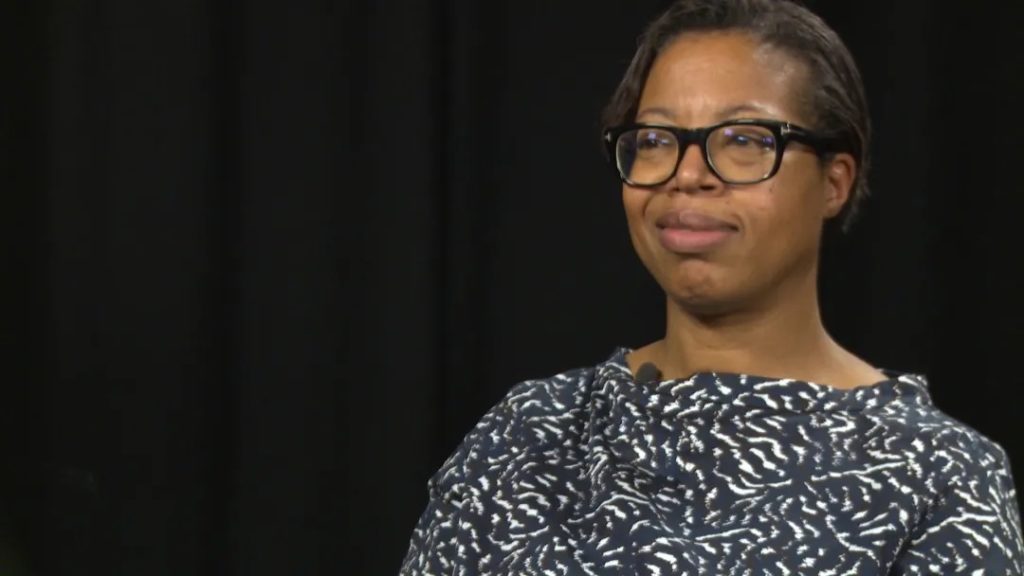DECEMBER 13, 2018

© Connected Histories of the BBC
As part of the AHRC-Connected Histories of the BBC, Saturday1st December 2018 saw the launch of the fifth in the series of BBC websites, Voices of the BBC.
Pioneering Women is published to coincide with the centenary of women’s suffrage in the UK, and explores the contribution that women have made to shaping close to 100 years of British broadcasting.
The website includes a large number of clips from programmes which have not been seen or heard since they were first broadcast several decades ago. There are also numerous extracts from interviews, as well as photographs and written documents that are being made publicly available for the very first time.
Highlights include:
- BBC journalist Martha Kearney (presenter of Today on BBC 4) reflects on the inspiring career of the BBC’s first female war correspondent Audrey Russell.
- The surprising story that, in its earliest decades, the BBC was at the forefront of employers who promoted equal opportunities and equal pay for women. Documents reveal the determination of the first Director-General John Reith that women and men “should rank on the same footing” and should be equally eligible for promotion.
- Documents revealing that the BBC was one of the first organisations to introduce maternity leave – this was in 1929, and it was in order to retain the services of Mary Somerville, who headed the School Broadcasting department.
- In the year that has seen the appearance of the first female Doctor, the website celebrates the pioneering composer Delia Derbyshire of the Radiophonic Workshop, who was responsible for the extraordinary arrangement of Doctor Who’s theme tune.
- Photographs, footage and interviews with other women of the Radiophonic Workshop including Daphne Oram, Maddalena Fagandini, and Elizabeth Parker, the sound designer for cult TV series Blake’s 7.
- A specially recorded interview with the first female DJ on Radio 1, and the first female presenter of the Old Grey Whistle Test, Annie Nightingale, who talks about facing sexist attitudes in broadcasting, and how moving from journalism to radio allowed her to concentrate on what really mattered – the music.
- A specially recorded interview with Lorna Clarke, Head of Production for Radio 2 and 6 Music, who discusses the equal pay dispute.
- A unique BBC love story between the BBC’s first telephonist Olive May and engineer Cecil Bottle, which provoked John Reith to reprimand the head of engineering for letting it happen!
- The story of Muriel Howlett, an Australian who was working as a typist in the BBC newsroom when John Reith asked her to report from on board the first flying-boat service from England to Australia in 1938.
- A specially recorded interview with Dame Jenni Murray, presenter of BBC Radio 4’s Woman’s Hour, giving her personal response to the archive material being released on this website. Dame Jenni reflects on the pioneering BBC women who inspire her, including Audrey Russell, Mary Somerville and Hilda Matheson; talks about her experiences of sexism in the1970s; and being a “member of the #metoo brigade”.
- Interviews with women who became broadcasting engineers during the Second World War, and excelled in roles previously only occupied by men.
Recorded interviews with important presenters and producers including Olive Shapley, Gillian Hush, Monica Sims, Yvonne Littlewood, Zena Skinner, Margaret Dale, and Susan Belbin. - A television interview from a 1954 edition of Mainly for Women, with the Indian politician and diplomat, Lakshmi Pandit.
- There is also a section called ‘Share Your Memories’ where you can upload your own thoughts and recollections as a viewer and listener of these BBC programmes.
The text has been written by Dr Kate Murphy (Bournemouth) and Dr Jeannine Baker (Macquarie University, Australia), with guest contributions from other academics, including Professor Lucy Robinson (Sussex), Dr Sejal Sutaria (Grinnell College, Iowa), Dr David Butler (Manchester), Dr Emma Sandon (Birkbeck), Kate Terkanian (Bournemouth), Professor Helen Wood(Leicester), as well as Martha Kearney (BBC).
Previous websites in the Voices of the BBC series can be found at: https://www.bbc.co.uk/historyofthebbc/100-voices
They include websites about race and identity, the history of elections broadcasting, the birth of television, and the reinvention of radio in the 1960s. These websites also include a large number of programme clips, interviews, photographs, documents, and transcripts for download.
The Voices of the BBC series is part of the AHRC-funded Connected Histories of the BBC project based at the University of Sussex and running from 2017 to 2021.
Jeannine Baker
December 2018



Leave a Reply